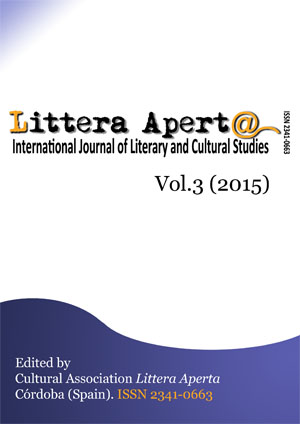“To the glory that was Greece": Hellenic patterns in Poe's poetry
Hauptsächlicher Artikelinhalt
Abstract
Edgar Allan Poe’s poetry has repeatedly drawn the attention of many literary critics since his poems have meticulously been delved into from different perspectives. Undeniably, a multitude of references that allude to ancient Greek mythology and classical literature are present within his verses. These have been noticed and delineated by noteworthy Poe scholars such as Scott Peeples, Kenneth Silverman, Daniel Hoffman and Kevin Hayes in several of their researches in the past. However, despite the wide range of studies that have been published, one cannot encounter any mention regarding the existence of Hellenic motifs or even a reference to an apparent Hellenism in Poe’s poetry. In an effort to outline what has already been affirmed with respect to this topic and to unearth additional links between Poe’s works and Greece, the present essay aims to determine the presence of Hellenic motifs in Poe’s “To Helen” and “Lenore”.
Downloads
Keine Nutzungsdaten vorhanden.
Artikel-Details
Ausgabe
Rubrik
Articles
Authors who publish with Littera Aperta agree to the following terms:
- Authors retain copyright and grant the journal right of first publication with the work simultaneously licensed under a Creative Commons Attribution 4.0 International License that allows others to share the work with an acknowledgement of the work's authorship and initial publication in this journal.
- Authors are able to enter into separate, additional contractual arrangements for the non-exclusive distribution of the journal's published version of the work (e.g., post it to an institutional repository or publish it in a book), with an acknowledgement of its initial publication in this journal.
- Authors are permitted and encouraged to post their work online (e.g., in institutional repositories or on their website) prior to and during the submission process, as it can lead to productive exchanges, as well as earlier and greater citation of published work (see The Effect of Open Access).
